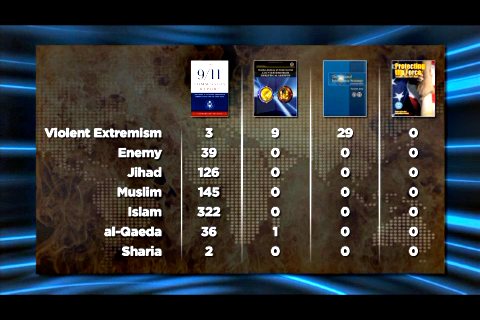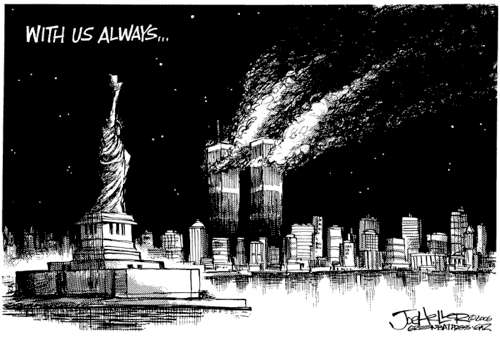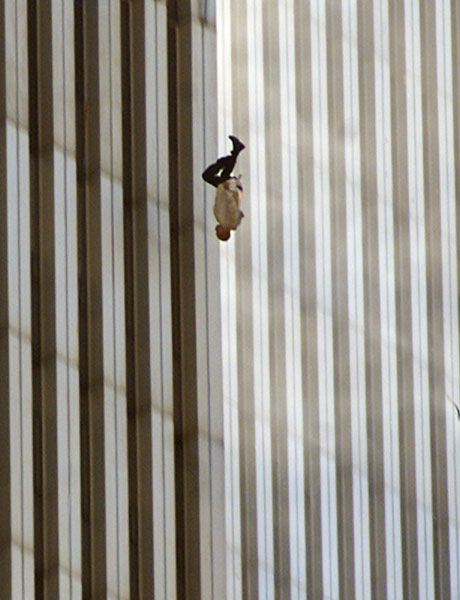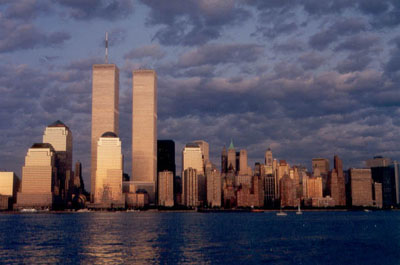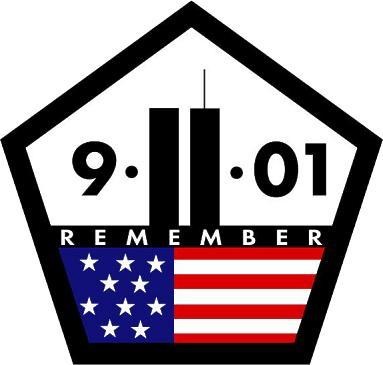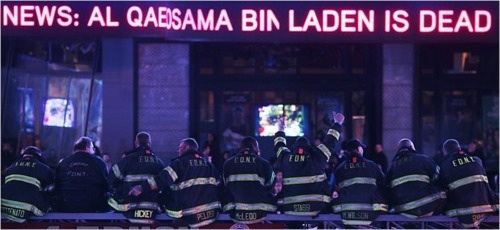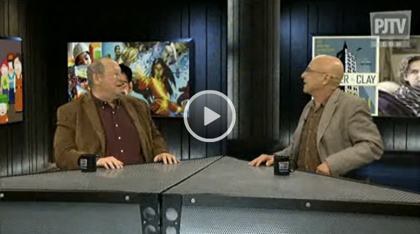In past years, I’ve written about where I was on 9/11, posted quotes, written about songs, tweeted the names of victims, and recommended blog posts, articles, and videos. But on nearly every anniversary of the 9/11 al Qaeda attacks since I started blogging, the unifying issue on my mind has been nearly the same: To assess where we are and how we are faring some years after.
Reviewing what I’ve written in years past, I find that my answer to that question has changed very little, and the farther we get from that awful day the more that fact worries me, for despite having successfully thwarted at least 19 subsequent would-be attacks, I don’t think we’re faring very well as a culture, in crucial ways that for me raise serious questions about what our long-term future will hold.
I try not to let the gloom envelop me. In so many ways, I am an optimist in my heart of hearts. I have tremendous confidence in our culture and way of life, in our resilience and adaptability, and in all that we can achieve with our ingenuity and dedication and mutual goodwill. Yet it kills me to see that same culture mired in and hobbled by an unwarranted mentality of self-recrimination and self-doubt, and simultaneously unwilling to candidly examine and confront an ideological movement that is actively, deeply, vocally, immutably, and demonstratedly hostile to its foundational principles and continued existence.
What does it mean to live in a culture that is only just barely willing to stand up and fight for itself in the wake of a horrific act of war such as the 9/11 attacks? I would not have thought our present-day frame of mind possible to sustain after such an event, but the cultural and political divisions that predated 9/11 have proven far more resilient than I would ever have expected. We didn’t wake from our slumber of infighting to pursue, united and with doggedly committed determination, the defense and preservation our nation and way of life; rather, we retrenched and resumed fighting each other, our cultural fault lines painfully underscored in the process. As Michele Catalano wrote three years ago,
In so many ways, 9/11 ended up furthering any divisions we had instead of closing them. We chose up sides and backed away from each other as if we were our own enemies —- as if the enemies we had, those who steered planes into buildings, weren’t enough.
This realization, and the seeming impossibility of bridging the chasm, has been a knife in my heart ever since. It kills me. But I don’t see any way around it.
So many aspects of our cultural condition have caused me grief over the past ten years. I feel crestfallen that it is taking us as long as it has to rebuild at the World Trade Center site. I’ve felt deeply betrayed by a Hollywood that now routinely denigrates and vilifies the country whose values and achievements it once celebrated and defended, a Hollywood that I loved in my youth but have now all but written off and given up on. I have been deeply disappointed in a supposedly mainstream American press that seems to have seen it as its sworn duty to demoralize us and convince us of inevitable defeat and dishonor in the wars we’ve prosecuted, in a way that’s been shown to be transparently contingent on the political party of the President in the White House. I’m troubled that over the past three years, we’ve largely acted in ways that can only serve to embolden our enemies, while giving our friends and allies and those we should at least be lending moral support in their fight for freedom and against totalitarianism (c.f. Iran’s democracy activists, and other participants in the recent “Arab Spring” uprisings) scant reason to hope for the backing of a country that has for so long been thought of as a beacon of hope and the moral “leader of the free world”. It makes my heart sink that too many of our own citizens seem to believe that America is the problem in some form or other.
All of these cultural factors pain me and deeply trouble me, but on this 10th anniversary of the 9/11 attacks I’m willing to largely put them aside in the interest of getting just one, crucial point across regarding the single most dangerous problem we face: the inability or unwillingness to name, frankly discuss, and squarely face our ideological enemy. More than anything else, it is a commitment to reckoning with this circumstance that needs to cross the perhaps otherwise impassable ideological chasm that separates the American Right and Left.
We can and will continue to differ with our countrymen regarding specific policy prescriptions, including matters of war. I could perhaps accept that, in a world where I felt we had all made a candid and fully informed assessment of the adversary we are up against. But there are still many among us who don’t seem to want to look Islamic Supremacism in the face, or even acknowledge its existence, either because the prospect is too frightening, or because the acknowledgment would violate long-practiced “PC” rules of cultural conduct that are so deeply ingrained in us, we fear we wouldn’t know how to function without blindly deferring to them. If I could make one plea to my fellow countrymen, Left, Right, and Center, it would be this: Please, please look with open eyes at what we are up against. Even if you must conclude that Islamic Supremacism is a fringe ideology with no real possibility of gaining dominance or causing substantial long-term harm to the free world (I truly wish I could believe it was so), do so with a full understanding and awareness of what the Jihadists intend for us, far-fetched or not, as detailed in their own words and actions: the return of a 7th century Caliphate that is fundamentally incompatible with and hostile to secular and pluralistic free societies, with all the attendant implications for women, homosexuals, infidels and religious and ethnic minorities. These Jihadists have told us their intentions time and time again, but we somehow refuse to believe them.
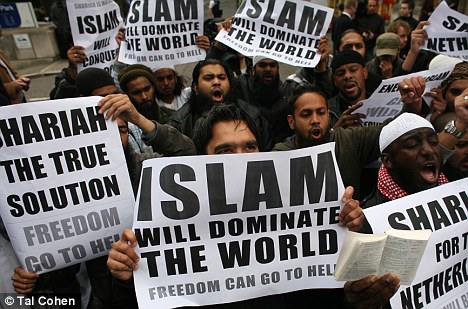
We are so conditioned to reflexively genuflect to any and every other culture as a show of goodwill, that both our critical thinking faculties, and our courage to overcome fear of social reprisals and voice our honest concerns, seem to have become disengaged or defunct. If every culture and religion in this world was as benign in its intentions toward us as most are, this willful blindness wouldn’t be a big problem. We could all live together in happy harmony and the “coexistence” that so many understandably wish for. But the fact that most others have relatively benign intentions has disarmed us to the crucial few that do not. Our cultural defenses are down — way down — and even being caught off our guard ten years ago with horrific consequences doesn’t seem to have changed that sufficiently. Informing and educating ourselves about what we’re up against is crucial, for we cannot expect to remain both ignorant and free.
Is this state of denial (or leaning strongly toward diplomatic use of language, if you prefer) causing any real problems? It certainly seems to be. How else could a man like Nidal Malik Hasan remain in active service in the United States Army, after repeatedly making statements against the United States and in sympathy with our Jihadist enemies? There are compelling and deeply troubling indications that not only our armed forces, but our broader defense and law enforcement agencies are compromised in their ability and sworn duty to protect this country and its citizens by pressure to whitewash reality, sanitize the use of language that could be perceived as hurtful or offensive, and shrink from confronting reality. We are letting organizations such as CAIR — a front for the Muslim Brotherhood, whose charter calls for a “grand jihad in eliminating and destroying the Western civilization from within and ‘sabotaging’ their miserable house by their hands and the hands of the believers so that it is eliminated and God’s religion is made victorious over all other religions” — advise our FBI on how to combat violent Islamic radicalism.
Bill Whittle’s April 7, 2010 PJTV piece “The Censorship Agenda” revealed in worrisome detail the sanitizing of our foundational national security documents that has taken place since the original, bipartisan 9/11 Commission Report. (As Bill himself suggests, contrary to the provocative subtitle “Obama Bans ‘Islam’”, the culture of self-censorship and willful blindness that produced these results may very well be indicative of a long-extant problem that predates the Obama administration.)
Think about the implications of Bill’s findings: in stark contrast with the comparatively frank and sober assessment of the 9/11 Commission Report (whose use of key terms is tabulated in the leftmost column, below), the FBI’s 2008 Counterterrorism Analytical Lexicon (next column), our 2009 National Intelligence Strategy report (next column), and the Protecting the Force: Lessons from Fort Hood report on the shooting rampage by Nidal Malik Hasan (rightmost column), use the terms “Islam”, “Muslim”, and “Jihad” a total of zero times.
Zero.
The National Intelligence Strategy report doesn’t even reference “al Qaeda” or use the word “enemy” (employing, instead, the term “violent extremist”, a total of 29 times). The DoD’s Fort Hood report, amazingly, makes no reference whatsoever to “violent extremism”, “Islam”, “Muslim”, “Jihad”, or even to Hasan’s name.
Think about this. Disregard, for the moment, our popular culture and variously informed conversation among Joes like you and me. How is it possible that the very institutions we charge with our defense — whose analyses one would expect, of necessity, to be unflinchingly sober and frank — have become this willfully blind?
I can only shake my head in near-despair at the self-sabotaging ridiculousness of it. It might be funny if the consequences weren’t so dire for all of us. (Bill, however, has a more upbeat outlook than I do this year.)
Forget about applying the non-lethal (but awfully emotionally insensitive) tool of humor by mocking our enemies, which appears to be completely out of the question save for a few valiant out-of-the-mainstream efforts such as Shire Network News and Sands of Passion. In most cases, we can’t even bring ourselves to precisely and candidly refer to them. If our thinking and definitions are clear, there should be no reason not to do so, given all that is at stake.
This man has the right idea (emphasis mine):
There is nothing insulting to decent, good members of the Muslim religion when I say “Islamic extremist terrorist”, any more than it is insulting to the Italian-American community (when I was a prosecutor) to say the word “Mafia”. Or that it would be insulting to decent Germans to say the word “Nazi”.
One mistake to avoid is political correctness. You can’t fight crime, and you can’t deter terrorism, if you are hobbled by political correctness. I believe that Major [Nidal] Hasan is an example of that. There is no way that Major Hasan should have been a major in the United States Army, after several years of spewing forth hatred for the United States of America… I would consider Major Hasan’s attack on Fort Hood an Islamic extremist terrorist attack. I have a hard time understanding why the government doesn’t see it that way, since he was yelling “Allahu Akbar” when he started killing people. …
… We cannot use this as an opportunity to say, “let’s put this behind us”, because if we we do that, we will repeat the mistake that we made before September 11th, which is not evaluating correctly the scope and the danger of Islamic extremist terrorism. Notice I use those words and I use them often. I do because I have a simple belief: If you can’t face your enemy, you can’t defeat your enemy. If you can’t honestly describe your enemy, there are distortions in your policy decisions as a result of that.
Re-read that last part, and internalize the essential lesson: If we refuse the accurate use of words, we are sabotaging ourselves.
Since accusations of “Islamophobia”, etc. are now flung automatically against any who express concern about Islam’s militant political arm as exemplified by the likes of al Qaeda and Hamas, let me be as clear as it’s possible to be, knowing full well that “it is impossible to speak in such a way that one cannot be misunderstood” (or willfully misinterpreted): I really don’t want to spend my time writing and thinking about this stuff. I have no intrinsic need to gratify myself or feel superior by grinding ideological axes against either an external enemy culture or my own countrymen. I’d much rather invest my time and energy inventing, innovating, creating, raising my son, spending time with my wife, living and working and striving to do better among peers whose origins span the globe, but who share a necessary basic dedication to the essential principles of a free society. I would love nothing more than to be decisively proven wrong about all of this, and get back to my life. I think and write about this kind of stuff because, as far as I can tell, there is no avoiding it. The very culture that furnishes and protects my ability and yours to live our lives as we do and freely engage in such humanity-advancing work, is under attack by another that demands our submission to a suffocating, stifling, totalitarian ideology. If we cannot name, discuss, and confront that ideology, we might as well surrender to it.
My “endgame” — the long-term future I hope for — is not a perpetual state of war (who would wish for that?), but a true coexistence of stable peace and security that can only exist after the Islamic Supremacist threat has been acknowledged and somehow neutralized. That is to say, I seek a peace worth having. To whatever extent we can accomplish that without resorting to the use of force and violence, wonderful — you have me on your side. I want and hope for a future where I can freely live, work, and prosper alongside all others who share my commitment to upholding the essential principles of our free society, Muslim and non-Muslim alike, regardless of where on the globe they hail from, without any of us having to fear violence from totalitarian nutjobs. There is too much to do and achieve for us to waste our time, capabilities, and resources on war where we have a reasonable alternative. But to shrink from the last-resort necessity of war when it is upon us seems to me no less a betrayal of the society we rightly cherish, for if left undefended that society will crumble.
I speak “peace”, when peace is spoken.
Even when we are not in our worst moments of genuflecting self-censorship, our choice of terminology has been clumsy, muddled, and unhelpful from the start — and, make no mistake, these poor choices of terminology sink us. Case in point: A “War on Terror” is no more meaningful than a “War on Blitzkrieg”, or a “War on Kamikaze strikes. Terror is a tactic, not an identification of the ideology that motivates its perpetrators. The ideology we’re up against is is most accurately described as “Islamic Supremacism” — a militant, political branch of Islam that sees as its imperative the subjugation under strict Islamic law (Sharia) of all non-Muslims and any who wish to live in free and pluralistic societies. To attempt to broaden our response to al Qaeda’s brand of violent Islamic Supremacism into a “War on Terror” is to dilute our sense of purpose, and pretend against evidence that there are just as many terrorists motivated by various other ideologies who pose an imminent threat. This awkwardly vague and clumsy choice of words was, I think, both an attempt to avoid any reference to or indictment of any sect of “Islam”, and a well-intentioned overture of comradeship to other nations who had suffered terrorist scourges of other origins, but in the end I believe it’s been an ill-advised one. Since we’re not supposed to draw any connection between acts of terrorism and even a small, extreme, ostensibly non-representative minority fringe of Islam, we try to make do with the unhelpfully vague “War on Terror”, and it’s a wonder if we don’t forget what, in fact, we are fighting against.
I’m out of words, but I hope I’ve made my point clearly.
Please, my friends. Before you decide this is not your fight, read, research, learn. Our shared future is at stake.
Recommended Watching
I’ve watched this memorial slideshow every year. It unfailingly moves me to tears. Never forget that day, nor misremember. Never forget those we lost, the heroes who ran unbidden toward danger and lost their lives saving others, the heroes aboard Flight 93 who lost theirs preventing another attack that would likely have killed scores more of their fellow citizens…
Inside 9/11: an in-depth accounting of the 9/11 attacks and the events that led up to them
102 Minutes that Changed America: a uniquely composed account of the attack on New York, seen through raw footage from a variety of sources, combined with emergency calls and radio communications
Recommended Reading
Of all the deeply moving posts, pages, and articles I’ve seen about 9/11, this one from 2009, comprised of stirring photos and an unflinching examination of the enemy and cultural crisis we face, is unforgettable and not to be missed: 9/11: Never Forget, Never Give In
I’ll also be posting links, separately over the next few days, to the best writing about 9/11 I encounter this year. Look for posts tagged “9/11”.
My Previous Years’ Posts
2009: Tomorrow is 9/11 ~ My Experience of September 11, 2001 ~ 9/11 Quotes
2008: 9/11, Seven Years On ~ 9/11, Seven Years On, Part 2 ~ 102 Minutes that Changed America
2007: 9/11, Six Years On
2006: Soon, Time Again to Reflect ~ 9/11 Observances ~ 9/11 Observances, Part 2
2005: I Remember
2004: Remembering and Rebuilding (Yes, that’s me, in a post at my old blog. I’ll be transitioning to blogging openly under my own name here shortly. It’s about time.) Republished here, September 12th, 2014.
Last Year, I posted a collection of quotes and musical selections. I still treasure these as among the most fitting and moving I have encountered, so I’ve copied them again below.
My new discovery for this year: The Arlington Ladies. Never heard of them? I hadn’t either. You can, and by all means should, read all about them here. (Thanks to Twitter friends Allahpundit and Cubanita for pointing out this story.) May the moving example of the Arlington Ladies’ respect and devotion stir each of us to do what we can.
I live each day in the humbling knowledge that I am made and kept free by the exertions of better men and women than myself, a debt I will never be able to fully repay. Let us give due regard this Memorial Day to those who gave the last full measure of devotion, that we might live the lives of the free.
Listening:
from Oscar Peterson, Night Train: “Hymn to Freedom”
from Dave Brubeck, Private Brubeck Remembers: “Don’t Worry ‘bout Me”, “We Crossed the Rhine”, “For All We Know”
from Five for Fighting, Two Lights: “Two Lights”
Quotes:
“It is foolish and wrong to mourn the men who died. Rather we should thank God that such men lived.” — General George S. Patton, Jr.
“We sleep soundly in our beds because rough men stand ready in the night to visit violence on those who would do us harm.” — Sir Winston Churchill / George Orwell †
“We fight wars not to have peace, but to have a peace worth having. Slavery is peace. Tyranny is peace. For that matter, genocide is peace when you get right down to it. The historical consequences of a philosophy predicated on the notion of no war at any cost are families flying to the Super Bowl accompanied by three or four trusted slaves and a Europe devoid of a single living Jew.” — Bill Whittle, “History”
“To be prepared for war is one of the most effective means of preserving peace.” — George Washington
“War is an ugly thing but not the ugliest of things; the decayed and degraded state of moral and patriotic feelings which thinks that nothing is worth war is much worse. A man who has nothing for which he is willing to fight, nothing which is more important than his own personal safety, is a miserable creature and has no chance of being free unless made and kept so by the exertions of better men than himself.” — John Stuart Mill
“Let every nation know, whether it wishes us well or ill, that we shall pay any price, bear any burden, meet any hardship, support any friend, oppose any foe, in order to assure the survival and the success of liberty.”
— John F. Kennedy
“We can’t share the earth with pure evil anymore than we can share the earth with smallpox.” — David Gelernter
“Evil must be confronted in its womb and, if it can’t be done otherwise, then it has to be dealt with by the use of force.” — Vaclav Havel
“The only thing necessary for the triumph of evil is for good men to do nothing.” — Edmund Burke
“The front line now, at this critical time, is in the hearts and minds of our own people. That’s where the real battle is now. That is our weakest point, our breach, our point of failure. We have not made the case to enough people and time is running out.
So maybe now, at this absurd point in this new kind of war, we’re the crack troops, we old and useless pajama patriots reduced to printing up pamphlets to sell war bonds to the weary, to make the case for holding on to an unglamorous, uninspiring, relentless grind because that — not Normandy and Midway — is the face of war in this gilded age of luxury and safety and plenty.” — Bill Whittle, “Deterrence”
“We shall not fail or falter; we shall not weaken or tire. Neither the sudden shock of battle nor the long-drawn trials of vigilance and exertion will wear us down.” — Sir Winston Churchill
† The “rough men stand ready” quote is frequently attributed to both Winston Churchill and George Orwell in various forms. It is a beautifully focused statement, whatever its true origin.

